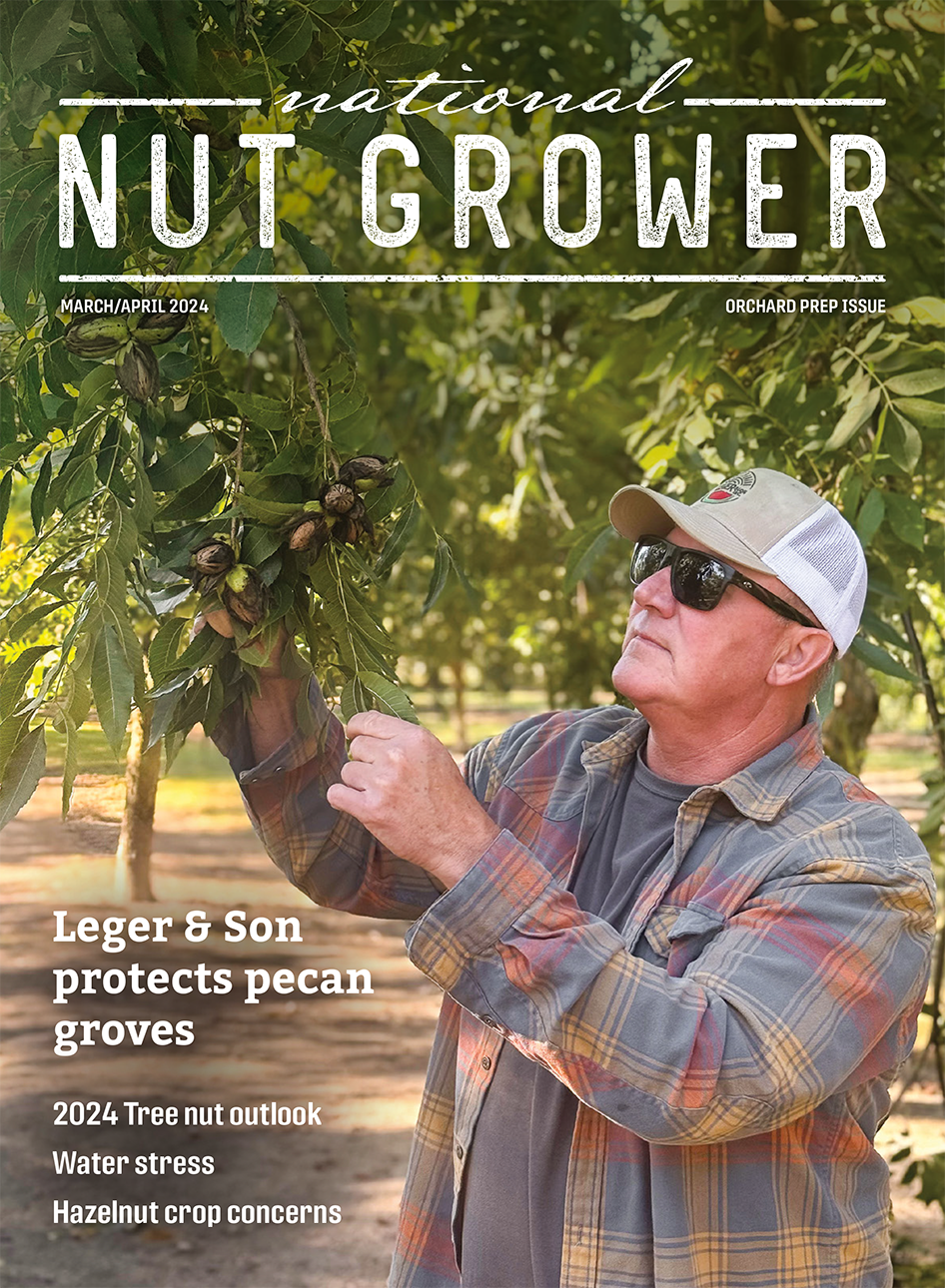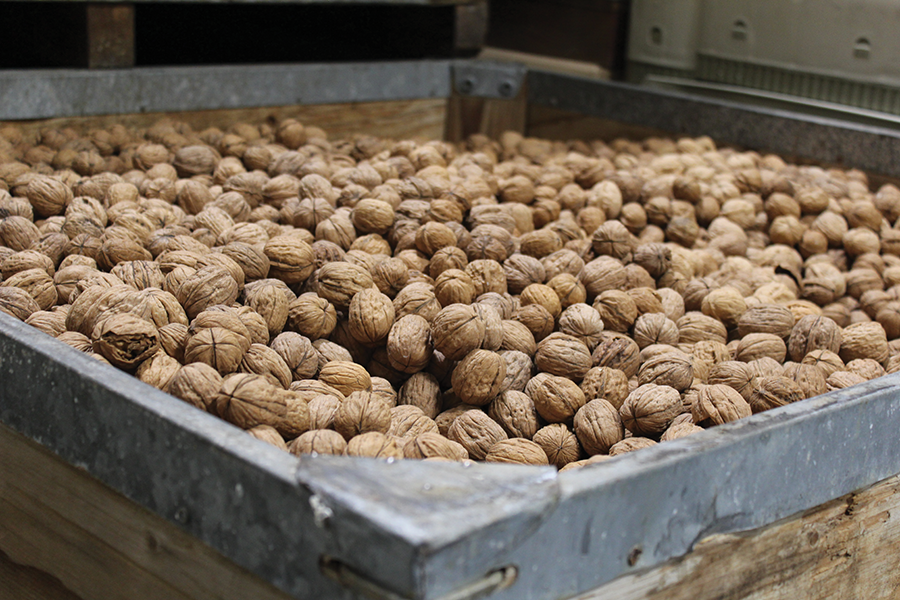
Sept/Oct 2022
Long-term bullish on walnuts
Walnuts may be having a tough year, but William “Bill” Carriere, president and CEO of Carriere Family Farms, sees more opportunity in the industry and isn’t letting the slump deter the farm’s expansion.
This fourth-generation farmer, with the fifth generation quickly on his heels, along with his family partners and board members decided it was time to expand the operation, to move with market trends and push for new sustainability goals. The project aims to triple or quadruple the farm’s size over the next decade and is well underway, and could possibly move the farm into the top five largest in the country.
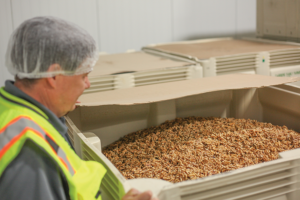
“But our goal is not to be the largest,” said Carriere. “Our goal is to be efficient, provide value and returns to growers.”
Carriere processes and markets walnuts for about 100 local growers, from drying to hulling and shelling, and sells both shelled and in-shell to 25 countries.
Expanding in tough years
The strategy meeting to determine the expansion occurred in early 2020, just before COVID-19 shutdowns began moving across the globe.
“We realized we needed to grow. The margins in our industry were shrinking, and they were small already. We needed to get more efficient and take advantage of economies of scale,” said Carriere.
The farm is always looking for opportunities on the orchard side, but the focus went to expanding walnut processing with the goals of improving efficiency, quality, safety, and the value of the product to customers and the returns to their growers.
Storage capacity was tripled, and shelling capacity was close to quadrupled to reduce overtime labor costs and night shifts. The upgrades in shelling and sorting technologies will help with larger percentages of recovery, as well as increasing halves and reducing scuffing.
Other additions include cold storage, truck docks, improved receiving speeds and better fumigation capabilities.
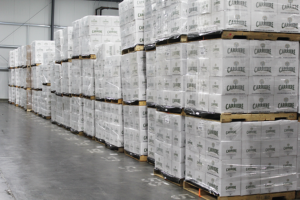
While Carriere admits he remains long-term bullish on the overall outlook for California walnuts, the industry isn’t without its slumps. The industry has lost over $3 billion over the last four years, mainly due to tariffs, the pandemic, and the significant supply chain disruptions over the last 18 months.
“Unfortunately, we expect these conditions to last with this coming crop, and they’re going to affect prices,” Carriere said.
Last year, California walnuts missed their critical holiday shipping season, when a large percentage of the crop makes its way to European grocery shelves in time for Christmas. The California Walnut Commission is working with other tree nut commodity boards to find solutions to these issues.
“It’s a tough year, but I think if we do a better job of getting our product to market in a timely manner, we’re going to be successful,” Carriere said.
The shipping season for walnuts is a little quiet toward the end of summer, so it’s not as critical. But other related industries are still facing significant backups at the ports, particularly in Oakland, California, from where most of the walnuts ship out. The proposal of a new Oakland A’s waterfront baseball stadium could complicate this further.
There’s frustration among walnut growers, and a lot of it is due to factors directly out of the industry’s control.
“If I have bugs in my field, I can spray or do other farming practices to take care of it,” said Carriere. “But, if there’s a port strike or a shipping delay, we’re at the mercy of the port.”
About two-thirds of walnuts are exported, and provide roughly 85,000 jobs.
Sustainability and efficiency partnership
These terms — sustainability and efficiency — are not mutually exclusive. At Carriere Family Farms, water is closely monitored to reduce costs. Soil and leaf samples are taken frequently to be sure only the necessary amount of nutrients is applied to avoid overfertilization.
The farm follows the latest integrated pest management recommendations released by University of California, Davis. The first solar array was installed over 10 years ago, with additions over the years and more planned in the expansion. The majority of power is generated by solar.
The latest, however, are plans for an onsite facility that will convert walnut shell waste to green hydrogen. This is a gasification process that thermally converts the shells into a syngas (synthesis gas) at really high temperatures in an oxygen-free environment.
It’s a zero emissions process that produces biochar, heat, which Carriere hopes to use in some fashion for the plant in phase two, and the syngas that is captured and sold. Not only will it remove the shell waste, but it will also eliminate the need to have it trucked — currently at 100 miles — away and burned to generate power. Its profitability will also provide a return for growers, whereas shells are currently a cost.
“It turns a waste product into something valuable, in a green way,” said Carriere. “A lot of handlers are having a problem getting rid of shells, and hopefully this will be an example that other handlers can copy.”
This modular unit is anticipated to process 40 tons of shells per day, and is expected to come online September 2023.
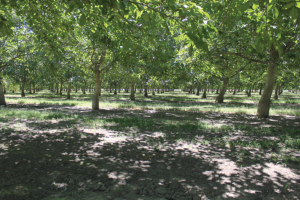
New varieties keep farmers going
While Carriere Family Farms continues to try new technologies and push the high quality of California walnuts, Carriere wants to remind fellow walnut growers that sustainability and efficiency is key to remaining in the market. In addition to the usual suspects — water, fertilizers, etc. — an important part of this is investing in newer varieties and saying goodbye to legacy varieties as a commercial grower.
“They take less inputs, generally, and they produce greater yield and better quality,” said Carriere. “And that’s the key to survival. If you don’t get good quality and good yields out of your field with minimal input, you’re not going to survive.”
It also helps processors market better.
Carriere serves on the California Walnut Board and the California Walnut Commission.
In-shell walnuts. Photo: Crystal Nay







